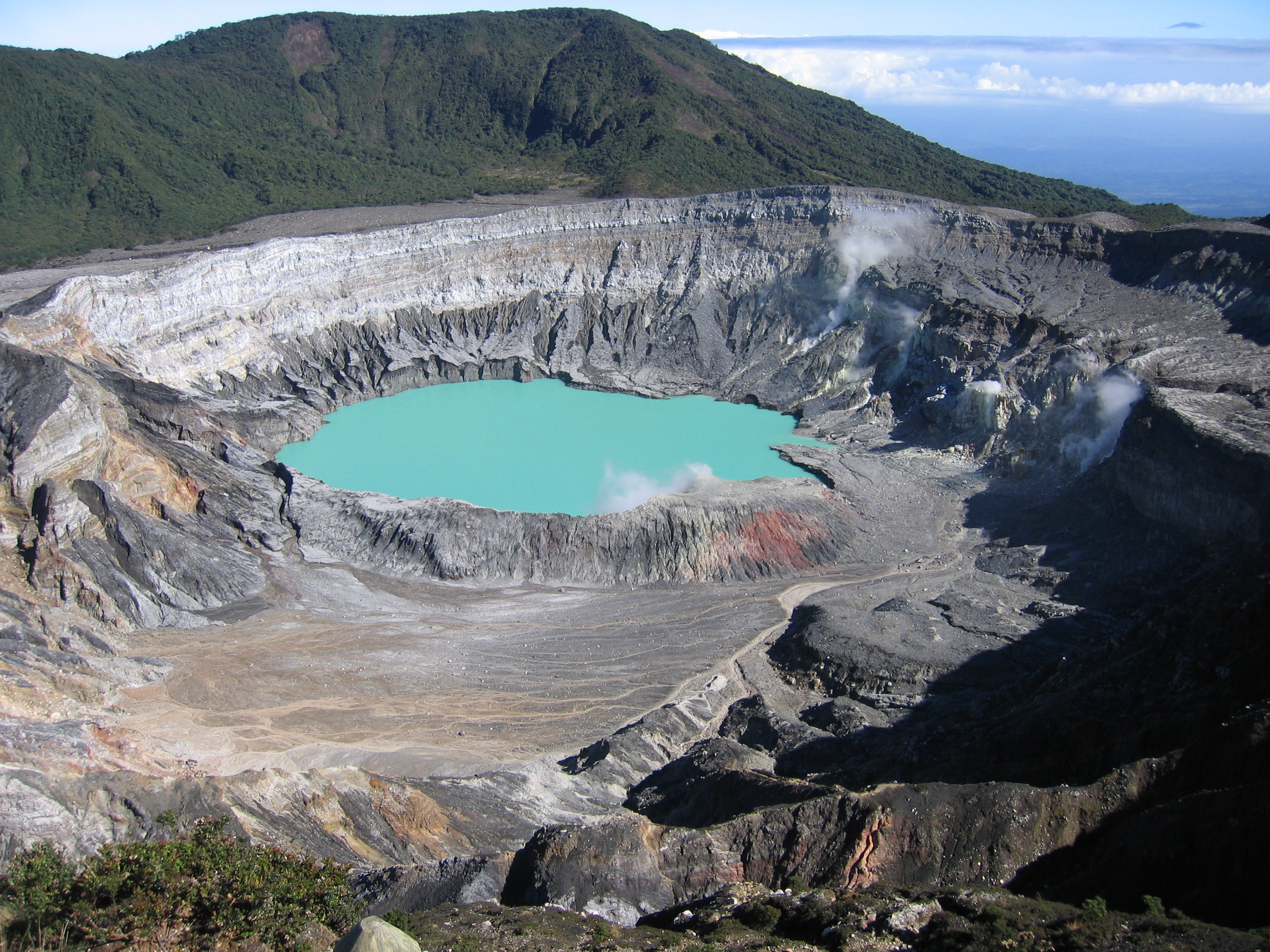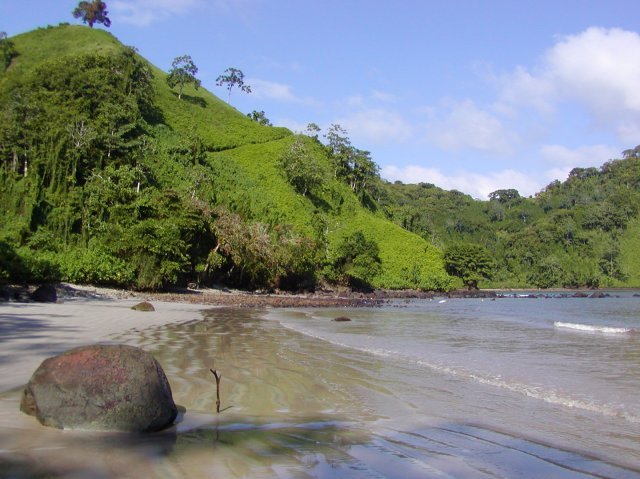|
Costa Rican Tourism Board
The Costa Rican Tourism Board ( es, Instituto Costarricense de Turismo) is the government agency responsible for promoting sustainable in Costa Rica. Originally the agency was created by decree in 1931 as the National Tourism Board, and by a law approved on 9 August 1955, the agency became the Instituto Costarricense de Turismo (ICT). The Tourism Board is responsible for granting the fiscal incentives available in the country since 1985 for tourism development. These incentives consist mainly of tax exemptions for companies providing hotel services, air transport, car rental, gastronomy services, travel agencies, and other tourism related services. The agency introduced in 1997 a voluntary Certification for Sustainable Tourism Program (known as CST) was introduced in order to turn "''the concept of sustainability into something real"'' by ''"improving the way in which the natural and social resources are utilized, to motivate the active participation of the local communities, and ... [...More Info...] [...Related Items...] OR: [Wikipedia] [Google] [Baidu] |
San José, Costa Rica
San José (; meaning "Saint Joseph") is the capital and largest city of Costa Rica, and the capital of the province of the same name. It is in the center of the country, in the mid-west of the Central Valley, within San José Canton. San José is Costa Rica's seat of national government, focal point of political and economic activity, and major transportation hub. San José Canton's population was 288,054 in 2011, and San José's municipal land area is 44.2 square kilometers (17.2 square miles), with an estimated 333,980 residents in 2015. Together with several other cantons of the central valley, including Alajuela, Heredia and Cartago, it forms the country's Greater Metropolitan Area, with an estimated population of over 2 million in 2017. The city is named in honor of Joseph of Nazareth. Founded in 1736 by order of Cabildo de León, the population of San José rose during the 18th century through the use of colonial planning. It has historically been a city of strat ... [...More Info...] [...Related Items...] OR: [Wikipedia] [Google] [Baidu] |
Sustainable Tourism
Sustainable tourism is a concept that covers the complete tourism experience, including concern for economic, social and environmental issues as well as attention to improving tourists' experiences and addressing the needs of host communities. Sustainable tourism should embrace concerns for environmental protection, social equity, and the quality of life, cultural diversity, and a dynamic, viable economy delivering jobs and prosperity for all. It has its roots in sustainable development and there can be some confusion as to what "sustainable tourism" means. There is now broad consensus that tourism should be sustainable. In fact, all forms of tourism have the potential to be sustainable if planned, developed and managed properly. Tourist development organizations are promoting sustainable tourism practices in order to mitigate negative effects caused by the growing impact of tourism, for example its environmental impacts. The United Nations World Tourism Organization emphasized ... [...More Info...] [...Related Items...] OR: [Wikipedia] [Google] [Baidu] |
Tourism In Costa Rica
Tourism in Costa Rica has been one of the fastest growing economic sectors of the country and by 1995 became the largest foreign exchange earner. Since 1999, tourism has earned more foreign exchange than bananas, pineapples and coffee exports combined. The tourism boom began in 1987, with the number of visitors up from 329,000 in 1988, through 1.03 million in 1999, over 2 million in 2008, to a historical record of 2.66 million foreign visitors in 2015. In 2012, tourism contributed with 12.5% of the country's GDP and it was responsible for 11.7% of direct and indirect employment. ''See Table 4, pp. 18 and Country/Economy Profile: Costa Rica, pp. 142-143.'' In 2009, tourism attracted 17% of foreign direct investment inflows, and 13% in average between 2000 and 2009. See pp. 422 and 425. In 2010, the tourism industry was responsible for 21.2% of foreign exchange generated by all exports. According to a 2007 report by United Nations Economic Commission for Latin America and the Caribbe ... [...More Info...] [...Related Items...] OR: [Wikipedia] [Google] [Baidu] |
Air Transport
Aviation includes the activities surrounding mechanical flight and the aircraft industry. ''Aircraft'' includes fixed-wing and rotary-wing types, morphable wings, wing-less lifting bodies, as well as lighter-than-air craft such as hot air balloons and airships. Aviation began in the 18th century with the development of the hot air balloon, an apparatus capable of atmospheric displacement through buoyancy. Some of the most significant advancements in aviation technology came with the controlled gliding flying of Otto Lilienthal in 1896; then a large step in significance came with the construction of the first powered airplane by the Wright brothers in the early 1900s. Since that time, aviation has been technologically revolutionized by the introduction of the jet which permitted a major form of transport throughout the world. Etymology The word ''aviation'' was coined by the French writer and former naval officer Gabriel La Landelle in 1863. He derived the term from the v ... [...More Info...] [...Related Items...] OR: [Wikipedia] [Google] [Baidu] |
Car Rental
A car rental, hire car or car hire agency is a company that rents automobiles for short periods of time to the public, generally ranging from a few hours to a few weeks. It is often organized with numerous local branches (which allow a user to return a vehicle to a different location), and primarily located near airports or busy city areas and often complemented by a website allowing online reservations. Car rental agencies primarily serve people who require a temporary vehicle, for example, those who do not own their own car, travelers who are out of town, or owners of damaged or destroyed vehicles who are awaiting repair or insurance compensation. Car rental agencies may also serve the self-moving industry needs, by renting vans or trucks, and in certain markets, other types of vehicles such as motorcycles or scooters may also be offered. Alongside the basic rental of a vehicle, car rental agencies typically also offer extra products such as insurance, global positioning s ... [...More Info...] [...Related Items...] OR: [Wikipedia] [Google] [Baidu] |
Gastronomy
Gastronomy is the study of the relationship between food and culture, the art of preparing and serving rich or delicate and appetizing food, the cooking styles of particular regions, and the science of good eating. One who is well versed in gastronomy is called a gastronome, while a gastronomist is one who unites theory and practice in the study of gastronomy. Practical gastronomy is associated with the practice and study of the preparation, production, and service of the various foods and beverages, from countries around the world. Theoretical gastronomy supports practical gastronomy. It is related with a system and process approach, focused on recipes, techniques and cookery books. Food gastronomy is connected with food and beverages and their genesis. Technical gastronomy underpins practical gastronomy, introducing a rigorous approach to evaluation of gastronomic topics. Etymology Archestratus wrote a guide to the foods of the Mediterranean in the form of a poem called "Gastron ... [...More Info...] [...Related Items...] OR: [Wikipedia] [Google] [Baidu] |
Travel Agencies
A travel agency is a private retailer or public service that provides travel and tourism-related services to the general public on behalf of accommodation or travel suppliers to offer different kinds of travelling packages for each destination. Travel agencies can provide outdoor recreation activities, airlines, car rentals, cruise lines, hotels, railways, travel insurance, package tours, insurance, guide books, VIP airport lounge access, arranging logistics for luggage and medical items delivery for travellers upon request, public transport timetables, car rentals, and bureau de change services. Travel agencies can also serve as general sales agents for airlines that do not have offices in a specific region. A travel agency's main function is to act as an agent, selling travel products and services on behalf of a supplier. They are also called Travel Advisors. They do not keep inventory in-hand unless they have pre-booked hotel rooms or cabins on a cruise ship for a group tr ... [...More Info...] [...Related Items...] OR: [Wikipedia] [Google] [Baidu] |
La Nacion (Costa Rica)
LA most frequently refers to Los Angeles, the second largest city in the United States. La, LA, or L.A. may also refer to: Arts and entertainment Music * La (musical note), or A, the sixth note * "L.A.", a song by Elliott Smith on ''Figure 8'' (album) * ''L.A.'' (EP), by Teddy Thompson * ''L.A. (Light Album)'', a Beach Boys album * "L.A." (Neil Young song), 1973 * The La's, an English rock band * L.A. Reid, a prominent music producer * Yung L.A., a rapper * Lady A, an American country music trio * "L.A." (Amy Macdonald song), 2007 * "La", a song by Australian-Israeli singer-songwriter Old Man River Other media * l(a, a poem by E. E. Cummings * La (Tarzan), fictional queen of the lost city of Opar (Tarzan) * ''Lá'', later known as Lá Nua, an Irish language newspaper * La7, an Italian television channel * LucasArts, an American video game developer and publisher * Liber Annuus, academic journal Business, organizations, and government agencies * L.A. Screenings, a te ... [...More Info...] [...Related Items...] OR: [Wikipedia] [Google] [Baidu] |
Certification For Sustainable Tourism Program
Certification is the provision by an independent body of written assurance (a certificate) that the product, service or system in question meets specific requirements. It is the formal attestation or confirmation of certain characteristics of an object, person, or organization. This confirmation is often, but not always, provided by some form of external review, education, assessment, or audit. Accreditation is a specific organization's process of certification. According to the U.S. National Council on Measurement in Education, a certification test is a credentialing test used to determine whether individuals are knowledgeable enough in a given occupational area to be labeled "competent to practice" in that area. Types One of the most common types of certification in modern society is professional certification, where a person is certified as being able to competently complete a job or task, usually by the passing of an examination and/or the completion of a program of stud ... [...More Info...] [...Related Items...] OR: [Wikipedia] [Google] [Baidu] |
Economy Of Costa Rica
The economy of Costa Rica has been very stable for some years now, with continuing growth in the GDP (Gross Domestic Product) and moderate inflation, though with a high unemployment rate: 11.49% in 2019. Costa Rica's economy emerged from recession in 1997 and has shown strong aggregate growth since then. The estimated GDP for 2022 is US$68.5 billion, up significantly from the US$52.6 billion in 2015 while the estimated 2022 per capita (purchasing power parity) is US$24,837. Inflation remained around 4% to 5% per annum for several years up to 2015 but then dropped to 0.7% in 2016; it was expected to rise to a still moderate 2.8% by the end of 2017 In 2017, Costa Rica had the highest standards of living in Central America in spite of the high poverty level. The poverty level dropped by 1.2% in 2017 to 20.5%, thanks to reducing inflation and benefits offered by the government. The estimated unemployment level in 2017 was 8.1%, roughly the same as in 2016. The country has evolve ... [...More Info...] [...Related Items...] OR: [Wikipedia] [Google] [Baidu] |
Tourism In Costa Rica
Tourism in Costa Rica has been one of the fastest growing economic sectors of the country and by 1995 became the largest foreign exchange earner. Since 1999, tourism has earned more foreign exchange than bananas, pineapples and coffee exports combined. The tourism boom began in 1987, with the number of visitors up from 329,000 in 1988, through 1.03 million in 1999, over 2 million in 2008, to a historical record of 2.66 million foreign visitors in 2015. In 2012, tourism contributed with 12.5% of the country's GDP and it was responsible for 11.7% of direct and indirect employment. ''See Table 4, pp. 18 and Country/Economy Profile: Costa Rica, pp. 142-143.'' In 2009, tourism attracted 17% of foreign direct investment inflows, and 13% in average between 2000 and 2009. See pp. 422 and 425. In 2010, the tourism industry was responsible for 21.2% of foreign exchange generated by all exports. According to a 2007 report by United Nations Economic Commission for Latin America and the Caribbe ... [...More Info...] [...Related Items...] OR: [Wikipedia] [Google] [Baidu] |
Institutions Of Costa Rica
Institutions are humanly devised structures of rules and norms that shape and constrain individual behavior. All definitions of institutions generally entail that there is a level of persistence and continuity. Laws, rules, social conventions and norms are all examples of institutions. Institutions vary in their level of formality and informality. Institutions are a principal object of study in social sciences such as political science, anthropology, economics, and sociology (the latter described by Émile Durkheim as the "science of institutions, their genesis and their functioning"). Primary or meta-institutions are institutions such as the family or money that are broad enough to encompass sets of related institutions. Institutions are also a central concern for law, the formal mechanism for political rule-making and enforcement. Historians study and document the founding, growth, decay and development of institutions as part of political, economic and cultural history. Def ... [...More Info...] [...Related Items...] OR: [Wikipedia] [Google] [Baidu] |






